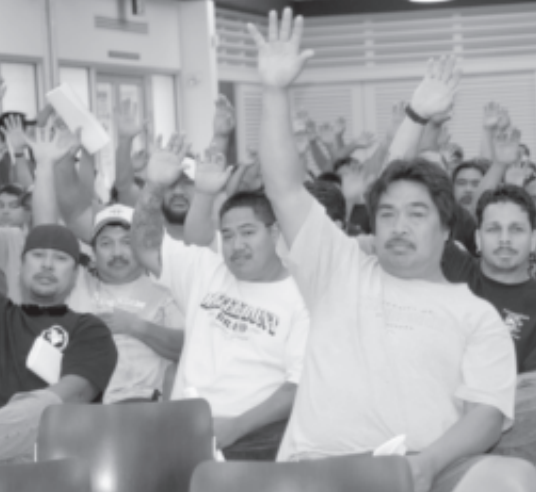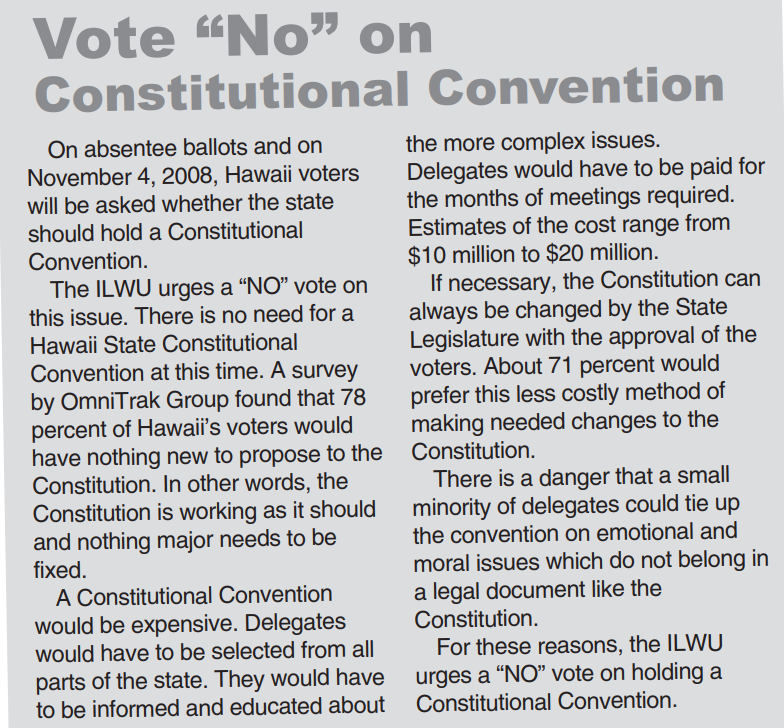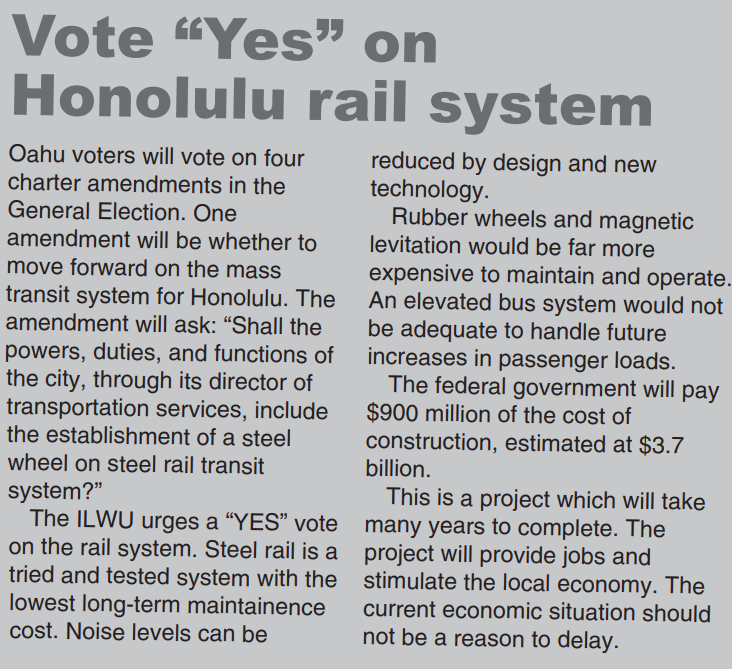
Hawaii longshore members raise their hands as they vote to approve a historic agreement which puts them ahead of the ILWU West Coast longshore for the first time since the industry was unionized. Hawaii fought for many years to achieve parity with the West Coast and has always played catch up to match the Mainland wages and benefits.
Hawaii’s basic longshore and wharf clerk members approved separate 6-year agreements which maintain and improve benefits and increase wages by $5 an hour over the life of the agreement.
For the first time, the wages of Hawaii longshore members will jump ahead of the West Coast. In the past, the agreement between the ILWU on the West Coast and the Pacific Maritime Association set the pattern, and Hawaii longshore would seek the same increases. In this negotiations, the West Coast will get the same hourly increase, but those increases come near the end of the contract, while Hawaii’s increases start from the beginning.
Wage differentials for skilled classifications will increase by an additional one dollar by the end of the agreement.
Longshore employers will continue to provide fully paid medical and dental benefits for active workers and retirees.
Improvements were made in a number of benefit areas. The years of service required to earn five weeks of vacation was reduced to 17 or more years, and 22 or more years will earn six weeks of vacation. Group life insurance will increase to $75,000. Funeral leave will be extended to include stepchildren.
Pension windows were created to encourage earlier retirements. Workers aged 59-1/2 to 62 retiring between August 1, 2009 and January 31, 2010 will receive a pension benefit of $165 times their credited years of service not in excess of 37 years.
Another window from August 1, 2012 and January 31, 2013 will provide a benefit of $170 times their credited service not in excess of 37 years for workers 59-1/2 to 62.
The wharf clerk agreement also made an important breakthrough in protecting their jurisdiction and work. Night differentials were also increased.
Hawaii longshore chair Nate Lum credits a strong, hard working union negotiating committee and the solidarity of the longshore grouping for the good settlement. “Everyone’s on the same page now. We respected each other’s jurisdiction and stayed united as a group.”
Members of the basic longshore union committee were: Wesley Furtado, Nate Lum, William Haole IV, Dustin Dawson, Kimo Brown, Nelson Rita, Samuel Kaaihue, and Raymond Carvalho.
Negotiations have started with Young Brothers and with the longshore maintenance shops, container yard, and container freight station.



